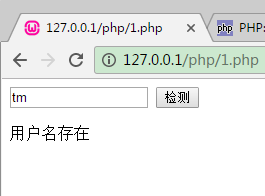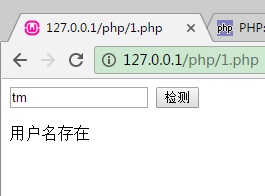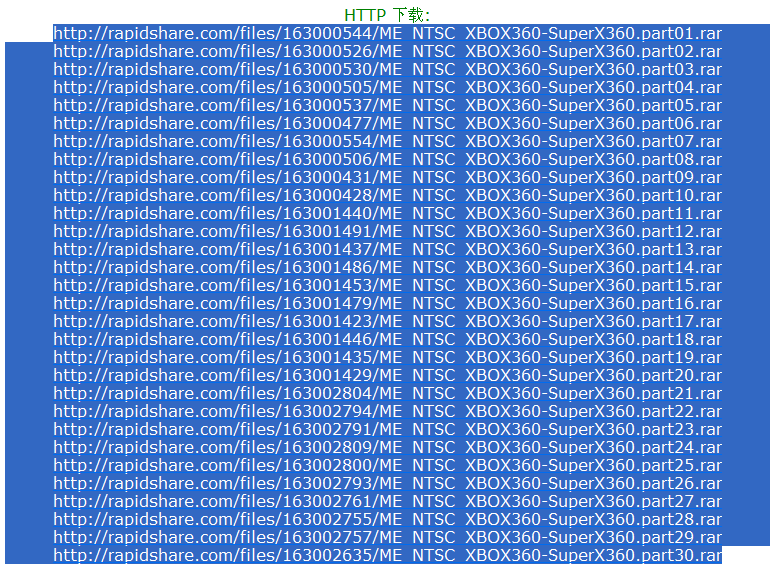 Backend Development
Backend Development
 PHP Tutorial
PHP Tutorial
 Summary of the definition and usage of crypt() function in php
Summary of the definition and usage of crypt() function in php
Summary of the definition and usage of crypt() function in php
In php functions, there are many encryption functions, one of which can implement data encryption function is called crypt() function. The crypt() function uses a one-way algorithm and has no corresponding decryption function. It returns a string encrypted using DES, Blowfish, or MD5 algorithms. On the surface, the crypt() function seems to be of little use, but this function is indeed widely used to ensure the integrity of system passwords. Because even if the one-way encrypted password falls into the hands of a third party, it will not be of much use since it cannot be restored to plain text. Below we will make some summary of the use of crypt() function, hoping to be helpful to everyone's PHP learning. crypt() function related content 1. PHP encryption function - crypt() function encryption usage example Before introducing the encryption function, let us first introduce the principle of data encryption: it is to process the original plain file or data according to a certain algorithm, so that It becomes an unreadable piece of code, usually called "ciphertext". In this way, the purpose of protecting data from illegal theft and reading is achieved! The main functions that can encrypt data in PHP
1. Summary of usage examples of crypt() function in PHP

Introduction: There are many encryption functions in PHP functions, one of which can implement data encryption function is called crypt() function. The crypt() function uses a one-way algorithm and has no corresponding decryption function. It returns a string encrypted using DES, Blowfish, or MD5 algorithms. On the surface, the crypt() function seems to be of little use, but this function is indeed widely used to ensure the integrity of system passwords. Because even if the one-way encrypted password falls into the hands of a third party, it will not be of much use since it cannot be restored to plain text. Below I...
2. Summary of encryption usage of php function crypt()

Introduction: There are many encryption functions in php functions, one of which can implement data encryption function is called crypt() function. The crypt() function uses a one-way algorithm and has no corresponding decryption function. It returns a string encrypted using DES, Blowfish, or MD5 algorithms. From
3. PHP encryption function—crypt() function encryption usage example

Introduction: Before introducing the encryption function, let us first introduce the principle of data encryption: it is to process the original plain file or data according to a certain algorithm to make it an unreadable piece of code. It is usually called "ciphertext". Through this method, the purpose of protecting data from illegal theft and reading is achieved!
4. Use crypt() function for encryption-php encryption technology

Introduction: The crypt() function uses the salt parameter to encrypt the plain text. When judging, the output information is encrypted again using the same salt parameter, and the judgment is made by comparing the results of the two encryptions.
5. Two classic PHP encryption and decryption functions are shared

##Introduction: This article mainly introduces the sharing of two more classic PHP encryption and decryption functions, one is Discuz!'s authcode encryption function (with detailed decomposition), and the other is the encrypt() function, both of which are relatively classic. , Friends in need can refer to
6. php openssl openssl_private_encrypt Question
##Introduction: Question: When picking up JD.com When using the payment interface, the local program written in dome can be used, but when running online, the openssl_private_encrypt() function cannot continue to run, no error is reported, and no data is returned. As shown in the picture: The local one is php5.6, opens openssl, Windows 7 server...7. PHP encryption and decryption function example tutorial_PHP tutorial Introduction: PHP encryption and decryption function example tutorial. Sharing of PHP encryption and decryption functions, one is Discuz!'s authcode encryption function (with detailed breakdown), and the other is the encrypt() function. You need to use PHP to encrypt specific information, that is, by adding 8. PHP encryption and decryption string summary_PHP tutorial Introduction: Summary of PHP encryption and decryption strings. Summary of PHP encryption and decryption strings. Sharing of PHP encryption and decryption functions. One is Discuz!'s authcode encryption function (with detailed decomposition), and the other is the encrypt() function. You need to use PHP to process specific information [Related Q&A recommendations]:
The above is the detailed content of Summary of the definition and usage of crypt() function in php. For more information, please follow other related articles on the PHP Chinese website!

Hot AI Tools

Undresser.AI Undress
AI-powered app for creating realistic nude photos

AI Clothes Remover
Online AI tool for removing clothes from photos.

Undress AI Tool
Undress images for free

Clothoff.io
AI clothes remover

Video Face Swap
Swap faces in any video effortlessly with our completely free AI face swap tool!

Hot Article

Hot Tools

Notepad++7.3.1
Easy-to-use and free code editor

SublimeText3 Chinese version
Chinese version, very easy to use

Zend Studio 13.0.1
Powerful PHP integrated development environment

Dreamweaver CS6
Visual web development tools

SublimeText3 Mac version
God-level code editing software (SublimeText3)

Hot Topics
 1387
1387
 52
52
 Alipay PHP SDK transfer error: How to solve the problem of 'Cannot declare class SignData'?
Apr 01, 2025 am 07:21 AM
Alipay PHP SDK transfer error: How to solve the problem of 'Cannot declare class SignData'?
Apr 01, 2025 am 07:21 AM
Alipay PHP...
 Explain the concept of late static binding in PHP.
Mar 21, 2025 pm 01:33 PM
Explain the concept of late static binding in PHP.
Mar 21, 2025 pm 01:33 PM
Article discusses late static binding (LSB) in PHP, introduced in PHP 5.3, allowing runtime resolution of static method calls for more flexible inheritance.Main issue: LSB vs. traditional polymorphism; LSB's practical applications and potential perfo
 Explain JSON Web Tokens (JWT) and their use case in PHP APIs.
Apr 05, 2025 am 12:04 AM
Explain JSON Web Tokens (JWT) and their use case in PHP APIs.
Apr 05, 2025 am 12:04 AM
JWT is an open standard based on JSON, used to securely transmit information between parties, mainly for identity authentication and information exchange. 1. JWT consists of three parts: Header, Payload and Signature. 2. The working principle of JWT includes three steps: generating JWT, verifying JWT and parsing Payload. 3. When using JWT for authentication in PHP, JWT can be generated and verified, and user role and permission information can be included in advanced usage. 4. Common errors include signature verification failure, token expiration, and payload oversized. Debugging skills include using debugging tools and logging. 5. Performance optimization and best practices include using appropriate signature algorithms, setting validity periods reasonably,
 How does session hijacking work and how can you mitigate it in PHP?
Apr 06, 2025 am 12:02 AM
How does session hijacking work and how can you mitigate it in PHP?
Apr 06, 2025 am 12:02 AM
Session hijacking can be achieved through the following steps: 1. Obtain the session ID, 2. Use the session ID, 3. Keep the session active. The methods to prevent session hijacking in PHP include: 1. Use the session_regenerate_id() function to regenerate the session ID, 2. Store session data through the database, 3. Ensure that all session data is transmitted through HTTPS.
 Describe the SOLID principles and how they apply to PHP development.
Apr 03, 2025 am 12:04 AM
Describe the SOLID principles and how they apply to PHP development.
Apr 03, 2025 am 12:04 AM
The application of SOLID principle in PHP development includes: 1. Single responsibility principle (SRP): Each class is responsible for only one function. 2. Open and close principle (OCP): Changes are achieved through extension rather than modification. 3. Lisch's Substitution Principle (LSP): Subclasses can replace base classes without affecting program accuracy. 4. Interface isolation principle (ISP): Use fine-grained interfaces to avoid dependencies and unused methods. 5. Dependency inversion principle (DIP): High and low-level modules rely on abstraction and are implemented through dependency injection.
 How to automatically set permissions of unixsocket after system restart?
Mar 31, 2025 pm 11:54 PM
How to automatically set permissions of unixsocket after system restart?
Mar 31, 2025 pm 11:54 PM
How to automatically set the permissions of unixsocket after the system restarts. Every time the system restarts, we need to execute the following command to modify the permissions of unixsocket: sudo...
 How to debug CLI mode in PHPStorm?
Apr 01, 2025 pm 02:57 PM
How to debug CLI mode in PHPStorm?
Apr 01, 2025 pm 02:57 PM
How to debug CLI mode in PHPStorm? When developing with PHPStorm, sometimes we need to debug PHP in command line interface (CLI) mode...
 Explain late static binding in PHP (static::).
Apr 03, 2025 am 12:04 AM
Explain late static binding in PHP (static::).
Apr 03, 2025 am 12:04 AM
Static binding (static::) implements late static binding (LSB) in PHP, allowing calling classes to be referenced in static contexts rather than defining classes. 1) The parsing process is performed at runtime, 2) Look up the call class in the inheritance relationship, 3) It may bring performance overhead.



